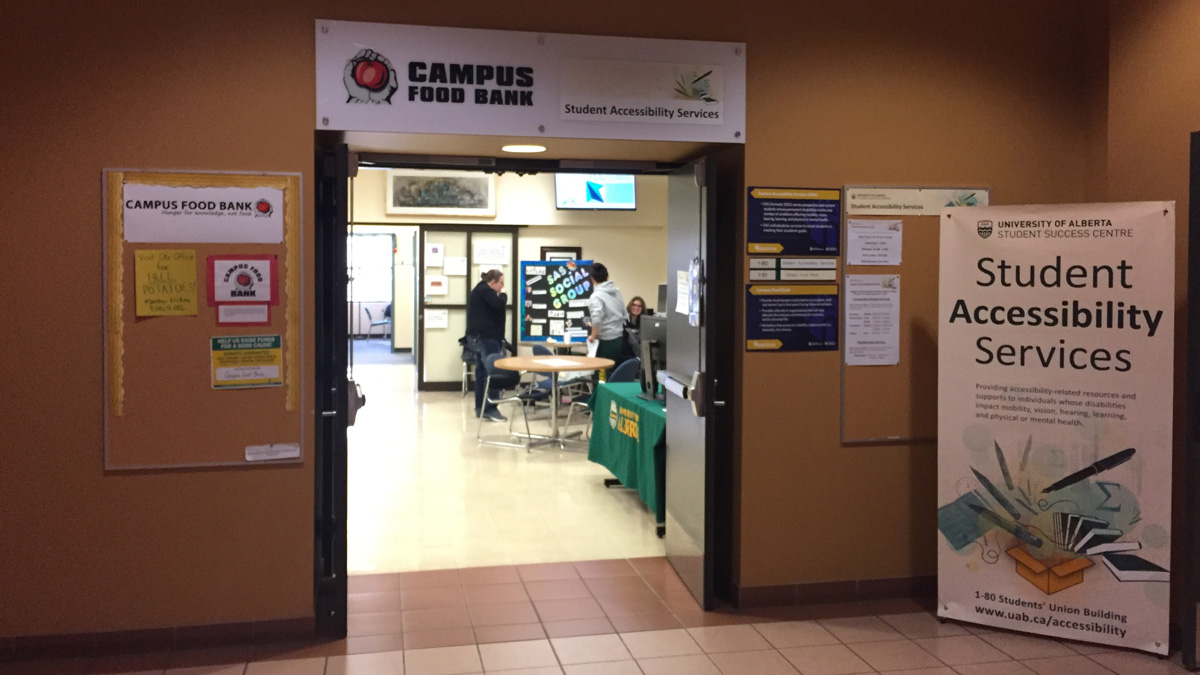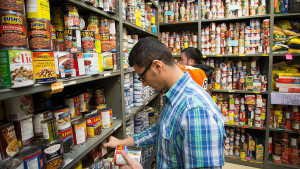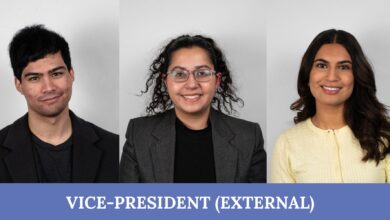Students to vote on food bank fee, future U-Pass cost
 Joshua Storie
Joshua StorieStudents might pay a new fee to supply the Campus Food Bank next year.
Referendum questions for launching a $1 Campus Food Bank fee and approving the next four years’ U-Pass fees will be asked in the Students’ Union elections in March.
In its December 6 meeting, Students’ Council permitted the Campus Food Bank to run its first DFU campaign without conducting a petition first — normally, a filled petition is required for an organization to run a referendum for the first time.
If students vote “yes” for a food bank fee, the Campus Food Bank will become a dedicated fee unit dispersed by the Students’ Union, to which students would pay $1 per semester. If students vote “yes” to the cost of future U-Passes, they will pay the following per semester:
- $145.00 in 2017-2018
- $148.00 in 2018-2019
- $153.00 in 2019-2020
- $158.00 in 2020-2021
If students vote against the U-Pass fees, the U of A undergrads will not be in the pass’ agreement with the City of Edmonton. If students vote against the food bank fee, the Campus Food Bank will not receive any funding, but the organization could try again in the next year.
Why a food bank referendum?
In a presentation to Students’ Council, Caitlin Phare, executive director of Campus Food Bank Society, said the fee would be used to help the food bank restaff, increase capacity, buy equipment, improve quality of food programs, and research program satisfaction. Demand for the food bank increased by 31 per cent from Fall 2015 to Fall 2016.

“We believe that university is a place where individuals should go to hunger for knowledge, not food,” Phare said. “Everyone talks about elementary school students needing lunch programs but you turn 19 and suddenly everyone forgets that you also need nutritional diets to succeed.”
The Campus Food Bank currently receives a grant from the Students’ Union that makes up 25 per cent of its annual budget. If it becomes a dedicated fee unit, it will no longer receive the grant, but the $1 fee would make up about 30 to 35 per cent of the budget, Phare said. Currently the majority of the food bank’s budget comes from individual donations and fundraisers, but she added that these are inconsistent revenue sources.
Normally, organizations must fill a petition before they can ask a referendum question to students, but Phare said volunteers are too swamped with work to carry out this work. Council voted in favour of letting the food bank bypass the petition.
“I’m very proud to say that our shelves are not bare right now, we are holding our own against the influx but that comes at an expense,” Phare said. “Our volunteers are going flat out all the time right now, we’re still processing food from the trick-or-treat event in October.”





Maybe the referendum should include a suggestion that the food bank run the U. of A. food services. They might run a more realistic plan than the ones consistently rejected by students, and the (probably) obscene profits would translate into financial support for the much needed food bank.